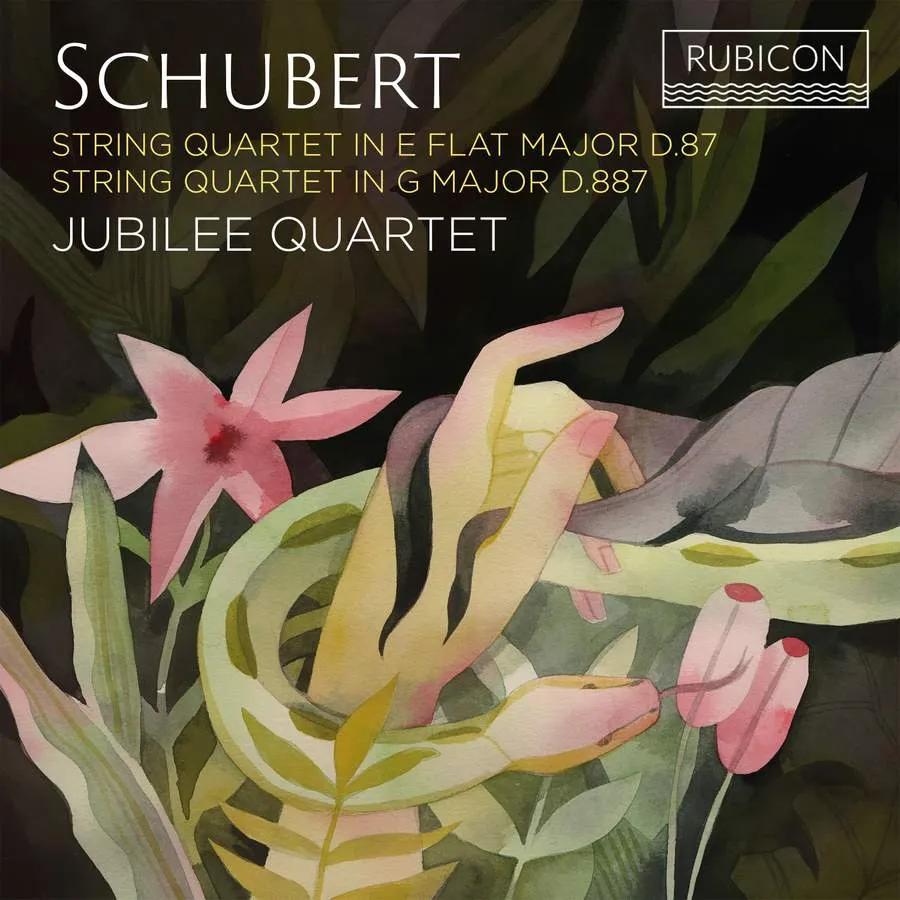
Schubert String Quartets Nos 10 & 15 Jubilee Quartet Rubicon RCD 1082 79:21 mins
The Jubilee Quartet here offers a contrasted pair of works from different stages of Schubert’s short life – the E flat Quartet, D87, composed in his teenage years, and the G major Quartet, D887, his last and greatest creation in the genre. The Jubilees’ approach to both works is impressive and controversial in equal measure. Ensemble and tuning are phenomenally precise, and individual and collective tone never forced. Tempos are convincing, with the players’ refusal to rush the G major Quartet’s tarantella finale greatly to their credit. Preparation has evidently been exceptionally searching, given the amount of detail projected with striking vividness.
The end result sounds, however, as if these interpretations are over-resistant to an essential quality in Schubert’s music – its compulsive need to flow and sing. A factor in this is an insistence, emphatic even by the standards of contemporary fashion, on so much non vibrato playing – a quality that particularly thwarts the young Schubert’s engaging idiom in the E flat Quartet. In the G major Quartet’s Allegro molto moderato first movement the relentless focus on moment-to-moment detail keeps tripping up the music’s longer trajectory (and with the exposition section’s repeat included here as Schubert indicates, it really is long). The Andante un poco moto second movement’s anguished extremes of expression are delivered in a forceful modernistic style appropriate to, say, Bartók’s Fourth Quartet – remarkable music-making in its way, but surely miscued in relation to Schubert? These are performances of serious quality if – and it’s a sizeable ‘if’ – you can accept the contentious expressive terms.
Malcolm Hayes